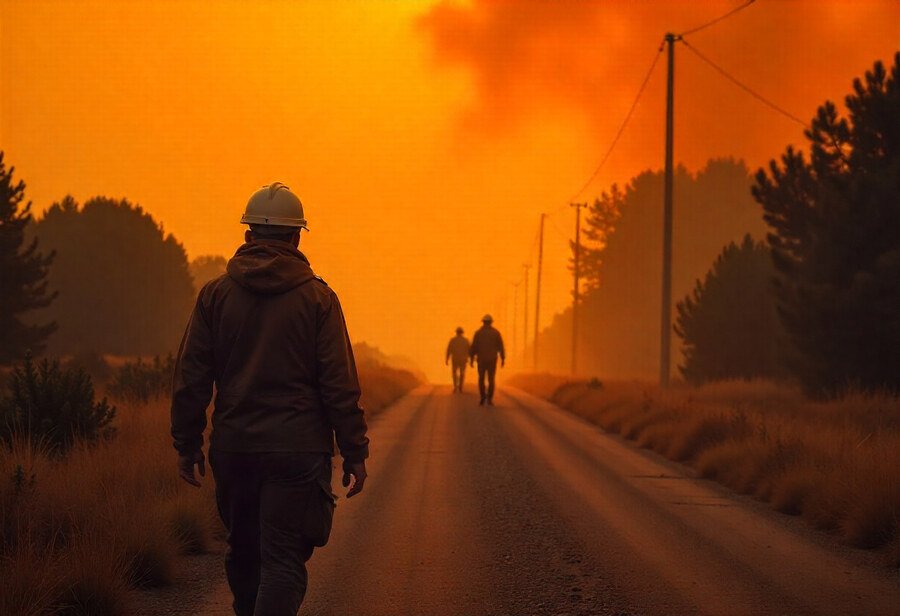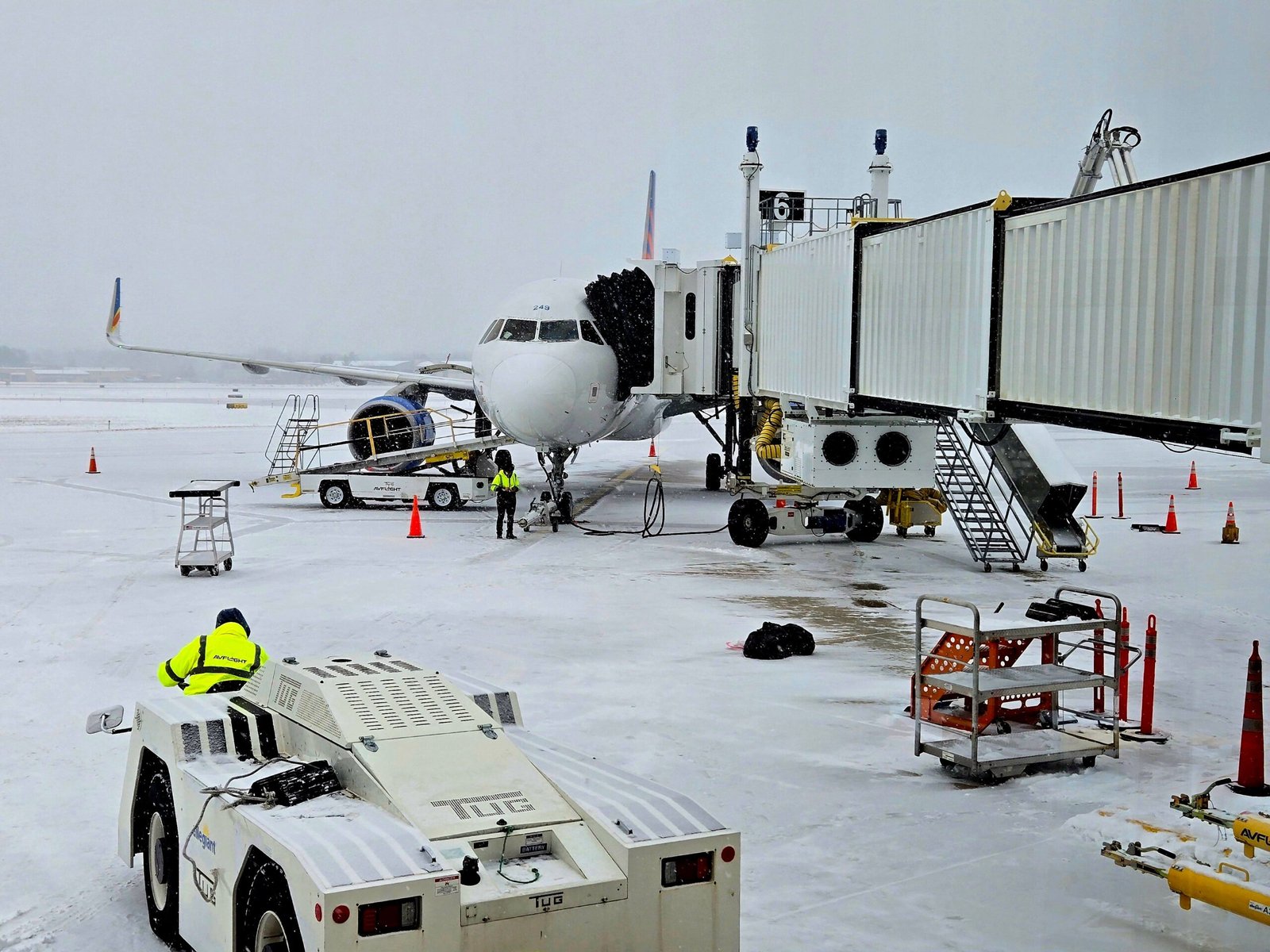Tips & Advices
Do You Need Travel Insurance For Your Summer Vacation?

If you need a medical evacuation this summer, you better hope you have travel insurance. Here’s how to find a policy.
getty
With vacation season just around the corner, many travelers are asking themselves: Do I need travel insurance for my summer trip?
Stefany Di Manno Ceccato already knows the answer. But she found out the hard way. A friend vacationing in Mexico smashed his head on a nightstand in his hotel, sustaining a serious injury.
“He had to fly to California for medical treatment, which cost him $75,000,” she says.
Travel insurance could have covered all of his expenses.
Ceccato says now she always buys travel insurance for herself. And, as a travel advisor, she also recommends it to her clients.
But what does travel insurance cover for you this summer—and what doesn’t it cover? What do you absolutely need to know about buying travel insurance? And how can you determine if you need it?
Travel Insurance Can Fit Your Vacation Needs
“If you’re traveling more than 100 miles from home, you should consider purchasing a travel insurance plan,” says Will Nihan, CEO of Travelex Insurance Services.
You have more options this summer than ever, he notes. Travelex recently released a full suite of new travel protection plans, introducing new coverages, benefits, and upgrades that travelers and travel advisors have requested. The idea of fitting coverage around the traveler—instead of the other way around—is gaining traction in the travel insurance business. And just in time.
“Think of all the things that can go wrong,” says André Disselkamp, CEO of the German travel insurance website Insurancy. “Travel insurance can make all the difference between enjoying your trip and stressing over it.”
All of which brings us to the number one mistake summer travelers make: not buying travel insurance or relying on lesser coverage from your credit card.
“That could lead to hefty losses should you encounter travel disruptions that prevent you from taking your summer trip, such as an illness, extreme weather, or delay of a travel carrier,” warns Jenna Hummer, a spokeswoman for Squaremouth.
What Does Travel Insurance Typically Cover?
Travel insurance generally covers trip cancellation, trip interruption, trip delay and medical expenses.
“While many other coverages are available, travelers typically want to protect their trip investment by covering medical costs if something happens,” explains John Rose, chief risk and security officer at ALTOUR.
A related—but often overlooked—type of coverage is emergency assistance, he says. For example, if you find yourself without necessary medication, you need someone who can help you replace it quickly. Or if your trip is interrupted and you need to reach your final destination, who will help you?
Rose says a travel advisor can help, but travel insurance can fill the gaps.
What Doesn’t Travel Insurance Cover?
But travel insurance isn’t a magic bullet if you’re protecting your trip.
“It doesn’t cover interruptions like a hurricane that was already forecast to affect your destination,” says Joe Cronin, CEO of International Citizens Insurance.
You can get coverage for pre-existing conditions under certain circumstances, but if you try to get hurricane coverage when a storm already has your destination in its crosshairs, good luck with that.
The closest thing to a magic bullet is a “cancel for any reason” policy, which is more expensive than a regular policy but will reimburse at least part of your prepaid, nonrefundable expenses, regardless of the reason for cancellation.
Jason Block, chief executive officer of WorldVia Travel Group, a collection of travel companies in the United States, explains the process. Travel insurance can cover pre-existing medical conditions through what’s called a pre-existing condition waiver if you meet specific requirements.
Typically, you must purchase the insurance within 14 to 30 days of your initial trip deposit, you must insure 100% of your prepaid nonrefundable trip costs and you must be medically able to travel at the point when you purchase the policy, he says. “It’s crucial to understand your specific policy requirements.”
Trip insurance also can also include activity limitations, such as an exclusion for extreme sports.
“It’s awful to discover your illness or injury is not protected because you participated in a restricted activity,” says Harding Bush, associate director of security operations for Global Rescue.
How To Understand Your Travel Insurance Policy
One of the biggest problems with travel insurance is that people don’t take the time to read the fine print and understand what is—and isn’t—covered.
Mitch Glass was traveling to Mexico with his pregnant wife when he discovered how his travel insurance defines “pre-existing” conditions.
His wife fell ill on the second day of their trip and spent five nights in a hospital.
“Turns out, she had hemorrhagic dengue, which is a potentially deadly infection that comes from mosquito bites,” he says. “We had travel insurance coverage, but our claim was denied because dengue has an incubation period of 7 to 10 days before symptoms appear. So even though she felt perfectly fine when our coverage started, the insurance company said she must have been bitten by the mosquito before leaving home.”
Glass, a travel coach, says it’s an absurd way to define pre-existing conditions.
“When you buy travel insurance, you trust you’ll be covered if you get sick abroad. But with this line of reasoning, you could hypothetically go on a week-long trip and never be covered for these types of diseases that have incubation periods,” he says.
How To Make A Travel Insurance Decision This Summer
While travel insurance can cover many things—and also doesn’t cover many others—there’s one main reason to get it this summer: if you’re traveling internationally and you need medical coverage.
“Most domestic health insurance does not cover you overseas, and universal health care is not intended for travelers,” explains Jeremy Murchland, president of Seven Corners Travel Insurance. “So you need travel insurance to pay for treatment if you get sick or hurt or need an emergency medical evacuation.”
Murchland says anything can happen when you travel this summer. It could be as mundane as the flu or as life-threatening as a car accident. Medical systems in other countries usually require you to pay for treatment up front or before they discharge you.
“You don’t want to find yourself in a medical emergency, unable to get necessary care or return home because you can’t afford it,” he says.
How Do You Know If You Need Travel Insurance This Summer?
Every trip is different. For example, a weekend visit to see relatives this summer might not be something you should insure. But a safari in Tanzania, definitely.
“You need to assess your trip’s complexity, cost, and potential risks before deciding on coverage,” advises Raymond Yorke, a spokesman for Redpoint Travel Protection.
Go through all the types of coverage:
- Trip cancellation or interruption: Reimbursement for prepaid, nonrefundable expenses if your plans change because of a covered reason.
- Medical emergencies: Coverage for unexpected medical expenses or evacuation needs while traveling.
- Lost or delayed baggage: Compensation for essentials if your luggage is delayed, damaged or lost.
- Travel delays: Reimbursement for additional expenses caused by significant delays.
Ask yourself: What kind of coverage do I need? And what are the exclusions?
“To determine if travel insurance is necessary, consider factors such as international destinations, expensive prepaid activities, or potential risks like extreme weather or illness,” adds Yorke.
Common mistakes include overlooking policy exclusions, underestimating coverage needs or purchasing insurance too late in the booking process.
Don’t Wait Too Long To Buy Travel Insurance
One more thing. If you’re thinking of getting insurance, timing is important.
“From analyzing thousands of customer decisions, I’ve noticed summer travelers often make the mistake of waiting until the last minute to purchase insurance,” says Eamonn Turley, CEO of Multi Quote Time, a U.K.-based travel insurance site. “Buying early, ideally when booking your trip, ensures you’re covered for pre-trip cancellations so that you get the most value from your policy.”
In other words, this is the ideal time to think about travel insurance—before you book your trip. Run through all the scenarios and consider the best coverage for your summer trip. You’ll be glad you did.
Tips & Advices
Travel insurer flags surge in Bali rabies claims as govt issues treatment warning

According to Zoom Travel Insurance, dog bites remain the leading cause of incidents, especially in ‘red zone’ tourist areas like South Kuta and Mengwi District.
Consequently, Bali authorities have ramped up stray dog vaccinations in these areas. However, risks remain for unprepared visitors.
Zoom Marketing Manager Natasha Sullivan says travellers often underestimate the severity of bites and scratches, even minor ones.
“Our team has noticed an increase in Bali claims tied to dog bites and the need for rabies treatment,” she remarked.
“While actual cases of rabies are rare, any stray or wild animal bite requires immediate treatment, given the potentially fatal consequences of an untreated infection.
“Even if the injury is very small, any sort of skin penetration should be considered a rabies risk and must be treated.”
What to do
Specifically, Sullivan says that if you haven’t been vaccinated for rabies and an animal bites you, “you will need a shot within seven days of being bitten.”
“You will then require a follow-up dose on day 3, 7, 14, and 28 after exposure, with the full treatment costing anywhere between $3,000 and $10,000, depending on where you are in the world,” she added.
Complicating matters, rabies treatment can sometimes be costly or more difficult to access in certain countries, especially in rural areas.
“Rabies treatment can be very hard to obtain at some destinations, and in some instances, you may have to fly or travel elsewhere to secure the vaccine,” Sullivan said.
The Department of Foreign Affairs says rabies treatment in Indonesia, including Bali, may be limited.
“The rabies vaccine is not available everywhere in Indonesia, and rabies immunoglobulin is generally not available at all to treat rabies if you contract it,” it states on its Smartraveller website.
“If you’re bitten, you may need to return to Australia or travel to another country for immediate treatment.”
Beyond dog bites, Zoom’s warning extends to monkey forests and wildlife parks. Citing a 2023 NSW Health report, it flags that 145 Australians were hospitalised due to animal bites abroad, many from monkeys in Southeast Asia.
And while there are no confirmed rabies cases from monkeys at Bali’s regulated sites, Sullivan says other infections, like the herpes B virus or tetanus, are a genuine concern.
What DFAT says
According to DFAT, “Rabies is present and is a risk throughout Indonesia, including at tourist destinations”.
“Rabies is 100% fatal. It is mainly transmitted by dogs, cats and monkeys, but can be transmitted by sea and land mammals,” it adds.
To lower the risk of rabies, DFAT urges Aussies to get vaccinated prior to travel, avoid direct contact with animals, and not feed or touch any animals.
If you’ve been bitten or scratched by an animal, it recommends to immediately wash the wound thoroughly for 15 minutes using soap and water and seek urgent medical attention.
Insurance imperative
Sullivan also stresses the importance of comprehensive travel insurance to avoid costly scenarios.
“Should treatment not be available locally, travel insurance can assist in paying to get you to quickly to the best available medical centre,” she remarked.
“Should this mean flying to another country, travel insurance would typically cover emergency evacuation and associated medical costs, ensuring you receive timely and appropriate care.”
“Having immediate access to assistance can make a significant difference in navigating and resolving unexpected situations. Always check your travel insurance policies, ensuring they provide sufficient support and adequate coverage for potential wildlife encounters and emergencies.”
In other Bali news, leaders in the island’s Badung Regency – which includes hotspots like Kuta, Legian, and Canggu – recently announced they are taking a page from Queensland’s playbook, with plans to give its most popular beach areas a distinctly Aussie-style revamp. Read more about that here.
Tips & Advices
Greece Crucial Safety Tips for UK Tourists Navigating the Escalating Wildfire Threat This Summer : You Need to Know

Sunday, August 3, 2025
Greece is heading towards another summer fire season which will put its inhabitants and holidaymakers – particularly from the UK – to serious risk. Hotter temperatures contribute to dry conditions and make the country a top destination for wildfires, which can escape control and enter travel areas with little notice. With UK tourists planning or wanting to plan their visit, it is important that the safety measures and how to deal with these risks are kept in mind. This guide is filled with resources on what to do before visiting, how to stay safe during your vacation from registering for emergency alerts to recognizing wildfire-prone areas and making sure your summer trip provides only good memories.
Greece is a renowned vacation spot for travelers, especially from the UK, but the country faces significant natural disaster risks, making it essential for visitors to stay informed and prepared. Earthquakes, floods, and wildfires are common in Greece, and these events have caused widespread damage to communities and disrupted travel plans in recent years. With the summer months being particularly dangerous, travelers need to heed advice and take precautions to stay safe.
Understanding Greece’s Natural Disaster Risks
Greece’s geographic location, nestled in the Mediterranean, makes it prone to natural hazards. Earthquakes occur frequently in the region, as it lies on several seismic fault lines. Furthermore, Greece’s dry, hot summers create ideal conditions for wildfires, which can spread rapidly and are often difficult to predict. Floods can also occur, though they are typically associated with the winter months. Given the variety of these potential hazards, the country poses unique risks for visitors, especially from April to October.
Wildfires: A Major Concern for Tourists
Among the various natural disasters, wildfires are a particular concern for tourists traveling during the summer. The dry conditions, combined with high temperatures, make many parts of Greece highly susceptible to fires, which can escalate quickly. The UK Foreign Office has consistently highlighted the increased likelihood of wildfires during the summer months, particularly from April through October. These wildfires can quickly become uncontrollable, leaving both locals and tourists at risk.
Recent years have seen several large fires that ravaged popular tourist destinations, including areas in Crete, the Peloponnese, and Evia. This risk is compounded by the fact that wildfires can spread unpredictably, endangering regions that were once considered safe.
How to Stay Safe: Emergency Alerts and Preparedness
To safeguard against the threat of wildfires, travelers are advised to activate emergency alert systems in their mobile devices. The Greek government offers an Emergency Communication Service that sends out crucial notifications about natural disasters, including wildfires. Travelers should ensure they receive these alerts for real-time updates. Here’s how to activate the emergency alerts on your device:
For iPhone users: Navigate to the Settings app, tap on Notifications, and activate Emergency Alerts.
For Android users: Open Settings, select Notifications, then go to Advanced Settings and toggle on Wireless Emergency Alerts.
For Samsung users: Access Settings, choose Apps, then Messages, and under Notifications, ensure Emergency Notifications are enabled.
By enabling these alerts, travelers will be notified promptly if they are in an area where wildfires or other disasters are threatening.
Regions Most at Risk for Wildfires
While wildfires can affect any region of Greece, some areas are particularly vulnerable due to their geography and vegetation. Areas such as Crete, the Peloponnese, Evia, and parts of western and central Greece are well-known for their high wildfire risk. These regions are home to dense forests and dry terrain that provide the ideal conditions for fires to spread.
Tourists staying in these areas should be extra cautious. If you’re in a wildfire-prone area, it’s crucial to follow all local safety guidelines and stay informed through alerts. If a fire breaks out, evacuation orders can change rapidly, so it’s important to be prepared to act quickly.
What to Do in Case of Wildfire or Other Emergencies
Should you find yourself in a situation where wildfires or other natural disasters pose a threat, the following actions can help ensure your safety:
Adhere to Local Authorities: Always follow the instructions and directives provided by local emergency response teams. These professionals will provide instructions on evacuation routes and other necessary actions to take during a disaster.
Contact Emergency Services: In case of immediate danger, dial 112, the emergency number in Greece, for assistance from police, fire, or medical services.
Reach Out to Your Travel Provider: If you’re stranded or unable to leave the affected area, get in touch with your airline or travel operator. They can assist with rescheduling flights or arranging other travel logistics.
Stay Informed and Alert: Keep monitoring local news and emergency alerts to stay updated on the situation. If evacuation orders are issued, follow them immediately and avoid waiting for conditions to worsen.
As Greece faces an escalating wildfire threat this summer, UK tourists must take crucial safety precautions, including registering for emergency alerts and staying informed about fire-prone areas to ensure a safe trip.
Conclusion: Ensure a Safe Visit to Greece
Greece is consistently one of the best places to go for a holiday, from beautiful scenery and loads of history, to a rich culture. Still, the risk of natural disasters, particularly wildfires, necessitates vigilance and preparedness for visitors to keep safe. Travelers must prepare for alerts to disasters such as wildfires via preparedness and registering to receive emergency alerts, being cautious and following the local safety instructions should action need be taken during daylight hours.
By following these precautions, travelers can have fun and safe stay in Greece while avoiding all the dangers that are related to natural elements of this country. By being proactive and keeping an eye out for potential threats, you can avoid the things that could derail what should otherwise be a memorable experience in Greece.
Tips & Advices
Why I Buy Travel Insurance, Even With Great Credit Card Perks

Advertiser Disclosure
Many of the credit card offers that appear on this site are from credit card companies from which we receive financial compensation. This compensation may impact how and where products appear on this site (including, for example, the order in which they appear). However, the credit card information that we publish has been written and evaluated by experts who know these products inside out. We only recommend products we either use ourselves or endorse. This site does not include all credit card companies or all available credit card offers that are on the market. See our advertising policy here where we list advertisers that we work with, and how we make money. You can also review our credit card rating methodology.
-

 Brand Stories2 weeks ago
Brand Stories2 weeks agoBloom Hotels: A Modern Vision of Hospitality Redefining Travel
-

 Brand Stories1 week ago
Brand Stories1 week agoCheQin.ai sets a new standard for hotel booking with its AI capabilities: empowering travellers to bargain, choose the best, and book with clarity.
-

 Destinations & Things To Do2 weeks ago
Destinations & Things To Do2 weeks agoUntouched Destinations: Stunning Hidden Gems You Must Visit
-

 Destinations & Things To Do1 week ago
Destinations & Things To Do1 week agoThis Hidden Beach in India Glows at Night-But Only in One Secret Season
-

 AI in Travel2 weeks ago
AI in Travel2 weeks agoAI Travel Revolution: Must-Have Guide to the Best Experience
-

 Brand Stories1 month ago
Brand Stories1 month agoVoice AI Startup ElevenLabs Plans to Add Hubs Around the World
-

 Brand Stories3 weeks ago
Brand Stories3 weeks agoHow Elon Musk’s rogue Grok chatbot became a cautionary AI tale
-

 Asia Travel Pulse1 month ago
Asia Travel Pulse1 month agoLooking For Adventure In Asia? Here Are 7 Epic Destinations You Need To Experience At Least Once – Zee News
-

 AI in Travel1 month ago
AI in Travel1 month ago‘Will AI take my job?’ A trip to a Beijing fortune-telling bar to see what lies ahead | China
-

 Brand Stories2 weeks ago
Brand Stories2 weeks agoContactless Hospitality: Why Remote Management Technology Is Key to Seamless Guest Experiences












